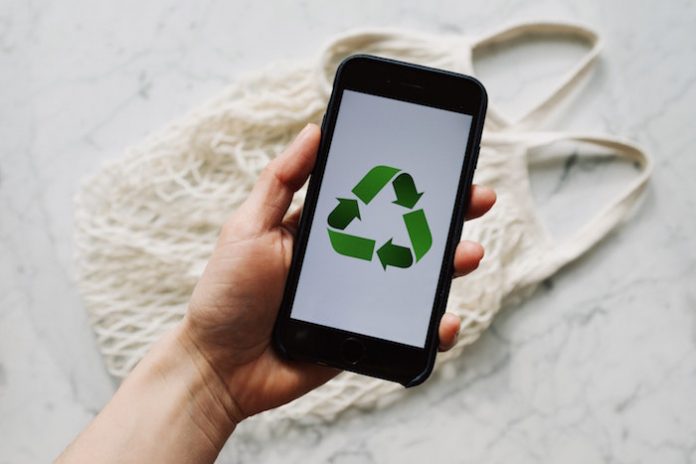While “zero waste” sounds extreme and unobtainable to many, don’t let the name deter you. Although sending no waste to landfills, incinerators, and the ocean is the ultimate goal of the movement, it is important to note that every small effort to reduce waste has an impact. Over time, initiatives like swapping to waste-free office supplies, consuming less energy, and using sustainable manufacturing practices will go a long way for resource recovery and conservation.
But that isn’t all embracing zero waste can do for a business; any company that strives to thrive should be taking full advantage of this eco-conscious movement and the benefits it offers.
Consumers Are Willing to Pay More
By starting on the path of zero waste with your product or service offerings, you can tap into the consumer demand for eco-friendly products—a study by Futerra showed that 88% of consumers want brands they like to become more ethical and environmentally friendly. But it doesn’t stop there. According to a Nielson poll of 30,000 consumers, 66% of respondents are willing to pay more for environmentally-friendly offerings.
Green factors that consumers are explicitly seeking include goods made with fresh, natural, and organic ingredients, as well as sustainable packaging and a company with social values.
A Unique Selling Point—Without Greenwashing
Environmentally-friendly products and services make consumers feel empowered, like they are making a smart decision for both their health and the environment. And zero waste can put your company’s offerings in this category, while also authentically helping the environment and avoiding the greenwashing downfall.
Over the years, we have seen products like diapers and haircare roll out “green” products. But it has come to light that these products aren’t truly friends to the environment. For example, while particular diapers claim to be made from organic cotton and are branded with a baby surrounded by lush leaves, the company won’t reveal if the cotton is certified organic. Plus, disposable diapers still litter landfills— contributing to the fact that diapers make up 2% of the US’s landfill waste. Then there are haircare products whose bottles have claims like “crafted with bio-renew”, yet there is no literature on specifically what this is, they still use harsh chemicals in their formulations, and pack their products in plastic bottles. Both of these instances are perfect examples of greenwashing.
Greenwashing is branding products with vague claims and nature-inspired imagery to make consumers feel like they are making environmentally-friendly choices. But in reality, companies continue to make little to no effort to reduce their environmental impact. The problem with greenwashed products isn’t just that they are unethical; consumers are also becoming privy to this practice and get turned off by products and companies that implement these underhanded strategies. Here is where zero waste comes in.
By striving for zero waste, your company’s eco-efforts become authentic. They show consumers that you place high value on the environment and are doing your part to protect it with your packaging, products, and business practices. Remember, authenticity sells!
Reduces Costs
Zero waste isn’t just great for the environment, but also for your budget as well. Looking at your business’s practices with a zero waste mindset can help you cut and eliminate costs. Here are a few examples.
Fuel
By opting to take conferences digital, instead of conducting interstate meetings, you can reduce emissions and save money on air travel. Additionally, locally sourcing office supplies and manufacturing materials can further reduce emissions created by shipping.
Energy
Small changes like replacing incandescent bulbs with LEDs can save you energy and cash. LEDs consume less energy and last up to 25 times longer than incandescent. Plus, they don’t throw any heat, so if you live in a hot climate, this could mean running the air conditioning or fans less.
Water
Does your production process require water? See if you can utilize some rainwater tanks or barrels to collect water and supplement the process. You may also want to look into a solar hot water system.
Plastic
Rethink coffee pods. They’re hard to recycle and expensive. Instead, opt for a single cup coffee maker with a reusable filter. Or, to save on energy costs, try a French press. More of a tea drinker? Avoid the microplastics that get released by tea bags and swap to loose leaf teas. Loose leaf teas tend to be more potent, so you can re-steep a scoop a few times and still get good flavor.
Paper
When printing is needed, print on both sides and in a font that requires less ink, like Courier or Eco Font.
Helps Conserve the Environment
As our population continues to grow, we are finding natural resources dwindling at an alarming rate—the world’s supply of fresh groundwater is depleting and we are losing 33 million acres of forestland annually. Add this to the fact that climate change is becoming more apparent than ever and it is clear we need to act now to reduce soil erosion, preserve our atmosphere, and lessen our ecological footprint.
It is important to note that your decisions, including the ones you make for your company, make a difference. For example, recycling a ton of paper saves 17 trees and 30,000 L of water. And manufacturing recycled paper requires 95% less energy and creates 95% less air pollution. To see where you can make improvements in your company, ask yourself questions like, can my products be created with more sustainable materials? Are there alternatives to single-use supplies I require? Do I really need that new office chair? For the best results in making zero waste decisions, consult the zero waste hierarchy.
With zero waste, it is best to think big and start small. Working toward a sustainable future isn’t just something to feel good about—it can also give your company an edge over the competition, save you money, and help protect the environment. Zero waste isn’t just a fleeting trend—it is how we can save our planet’s future.
Find a Home-Based Business to Start-Up >>> Hundreds of Business Listings.















































